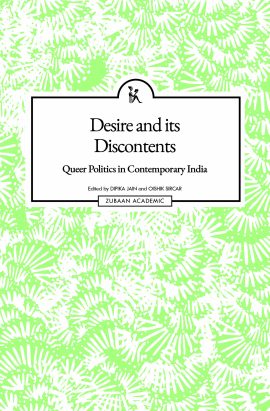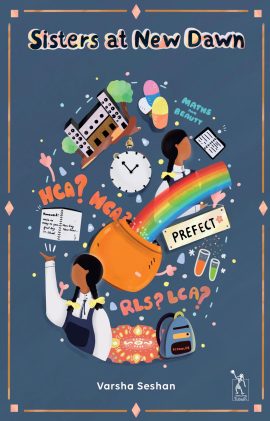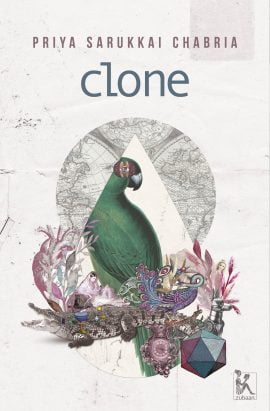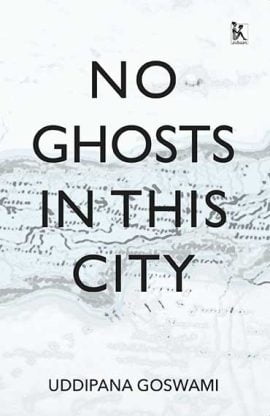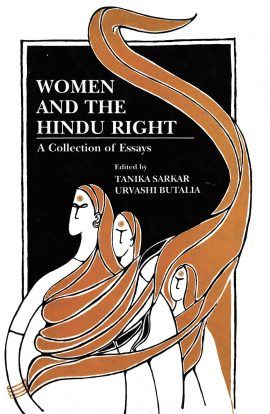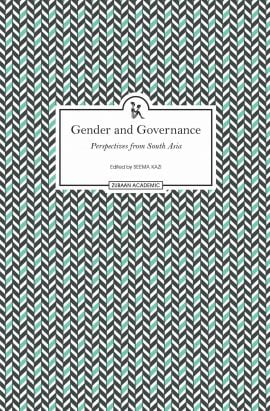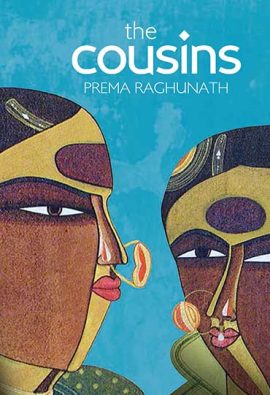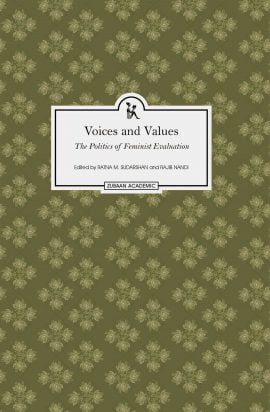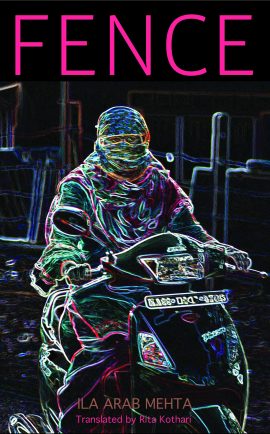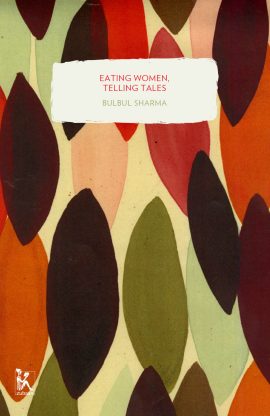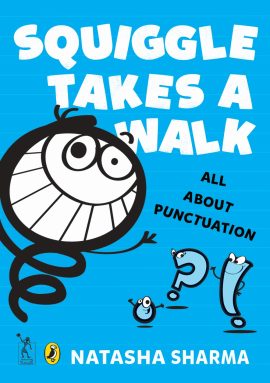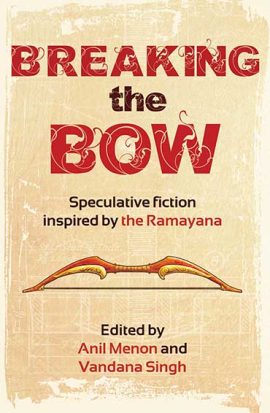No products in the cart.
Return To Shop
Log in / Sign in
Login
Register
Desire and Its Discontents: Queer Politics in Contemporary India
From ₹ 630Has the queer movement's politics in India escaped the combined onslaught of neoliberalism, Hindutva and brahminism? What has this triad done to queer politics in the wake of the 'reading down' of India's sodomy law? Has the decriminalization of adult, consensual and private sex, depoliticized the queer movement? Is the queer movement immune to casteist, sexist and religious prejudice? In the aftermath of the failures and triumphs in the historic Naz, Koushal, NALSA and Navtej judgements of the Supreme Court of India, the essays in this volume engage in a counterintuitive interrogation of the prejudiced dimensions of the mainstream queer movement in India. The essays offer insights into the ways in which new forms of queer solidarities, mobilizations and imaginaries are resisting and subverting the movement's tacit and overt alignments with neoliberalism, Hindutva and brahminism.
______________________________________________________________________________________
‘Too often, queer activists and scholars seeking emancipation through legal rights forget how much context matters, and how much law is committed to maintaining the very hierarchies that state power relies upon. Readers of this volume are unlikely to ever forget again. Contributors expose the exclusionary representations of queer legal subjects produced by recently celebrated judgements in the context of India, tracking myriad linkages to the right-wing, neoliberal, Hindutva agenda of the present government. Readers will emerge better equipped to continue the struggle for liberation wherever they are located.’
—Dianne Otto, Professorial Fellow, Melbourne Law School, The University of Melbourne
‘This uniquely caring anthology edited by Dipika Jain and Oishik Sircar at long last inaugurates an Indian critical queer theory, which is not a replica of the Euromerican approaches. Even as we welcome the decriminalization of gayness, we are asked to rethink beyond legal emancipation towards social emancipation—where there are very few subjects desiring neoliberalism. The struggles for a quest for queer politics constitute a response against the “violence and exclusions” of the triple enslavement constantly generated by forms, and forces of “Hindutva, neoliberalism and brahminism”. The “conditions of postmodernity” that further affect the “spectacles of emancipation” invite contemplation: how is an “embracing of the disruptive potential” of trans and gender non-binary identities, to create a “sustainable, radical politics, while simultaneously asserting the right to access state benefits?”. This book summons new futures beginning with a trans-constitutional renaissance.’
—Upendra Baxi, Emeritus Professor of Law, Universities of Warwick and Delhi
‘Dipika Jain and Oishik Sircar’s much anticipated second volume of essays extends their path-breaking original insights into the intimate entanglements of queer politics and neoliberalism. This volume too is poised to become nothing short of a classic, in bringing together some of the best-known voices on the politics of gender and sexuality. Turning their critical gaze to India, after the abrogation of Section 377, the essays offer refreshingly counter-intuitive analyses of such queer success and freedoms. In the aftermath of the decriminalization of homosexuality, the underlying nexus between Hindu nationalism, neoliberalism, casteism and queer rights has come fully to the fore. The volume provokes new ways to think of homonationalism and homocapitalism from this vantage point. Yet it is much more. From the relationship of queer to gender, caste, feminism and majoritarianism, to the transnational travel of Indian queerness to queering as a method, these remarkable interventions will singularly and together redirect our analytical and methodological impulses as well as reaffirm our political commitments to feminist queer worldmaking.’
—Srila Roy, Professor, Department of Sociology, University of the Witwatersrand
______________________________________________________________________________________DIPIKA JAIN is Professor of Law, Vice Dean (Research), Vice Dean (Clinical Legal Education), and the Director of the Centre for Justice, Law and Society at Jindal Global Law School (JGLS), India. She served as a visiting faculty member at the Transnational Law Institute at Kings College London from 2017-2020. Her research was cited by the Supreme Court in the landmark decision of Navtej Johar v. Union of India (2018). In 2018, she was designated the first Research Professor at JGLS. In 2020, her research was cited in the legislative debate on abortion laws in the Indian Parliament. She has published in several prestigious journals, law reviews, and compendia internationally, and her work can be found at https://jgls.academia.edu/DipikaJain. She has consulted for the UNDP, Centre for Reproductive Rights (New York), ARROW, and IPAS Development on Reproductive Justice, Digital Health and Family Law. As the Director of CJLS, she has addressed various barriers in access to justice for marginalized persons in India.
OISHIK SIRCAR is Professor of Law at Jindal Global Law School, and an associate member of the Institute for International Law and the Humanities, Melbourne Law School. Oishik is the author of Violent Modernities: Cultural Lives of Law in the New India (Oxford University Press, 2021) and Ways of Remembering: Law, Cinema and Collective Memory in the New India (Cambridge University Press, 2024). With Dipika Jain, Oishik has previously co-edited New Intimacies, Old Desires: Law, Culture and Queer Politics in Neoliberal Times (Zubaan, 2017). With Debolina Dutta, Oishik is the co-director of the award-winning documentary film We Are Foot Soldiers (PSBT, 2010).
Books, Chapter Books for Tweens, Chapter Books for Tweens, e-Books, Fiction, Fiction, New Releases, New Releases, Young Zubaan, Young Zubaan
Sisters at New Dawn
From ₹ 163
As if being the new kids isn’t enough, Padma and Kannagi Shankar quickly find that New Dawn High School isn’t exactly a regular school. They have weird subjects like ‘Pot of Gold’ and ‘Maths and Beauty’ and some of their classes are taught by students! But it’s more strange than bad, and the sisters start to enjoy themselves and make new friends – until a discovery in the library and a few unpleasant encounters lead them to question their presence at the school in the first place. With their parents far away, and their Thatha not being the easiest person to talk to, the girls are forced to find solutions of their own – but will they work, or will the bullies win?
VARSHA SESHAN is a children’s writer, twice shortlisted for the Scholastic Asian Book Award. She has written 15 books for children and facilitates a writers’ club for pre-teens at a school in Pune, where she lives. Additionally, she is a classical dancer with over 25 years of training in Bharatanatyam. Find out more about her at www.varshaseshan.com.
Select format
This product has multiple variants. The options may be chosen on the product page VARSHA SESHAN is a children’s writer, twice shortlisted for the Scholastic Asian Book Award. She has written 15 books for children and facilitates a writers’ club for pre-teens at a school in Pune, where she lives. Additionally, she is a classical dancer with over 25 years of training in Bharatanatyam. Find out more about her at www.varshaseshan.com.
Clone
From ₹ 298
A revolutionary take on the classic dystopian science fiction novel, Clone inaugurates a new kind of writing in India. Priya Sarukkai Chabria weaves the tale of a fourteenth-generation clone in twenty-fourth-century India who struggles against imposed amnesia and sexual taboos in a species-depleted world. With resonant and allusive prose, Chabria takes us along as the clone hesitantly navigates through a world rendered unfamiliar by her expanding consciousness. This slow transformation is mirrored in the way both she and her world appear to the reader. The necessary questions Chabria raises revolve around a shared humanity, the necessity of plurality of expression, the wonder of love, and the splendour of difference.Clone’s adventurous forays into vastly different times, spaces, and consciousness—animal, human, and post-human—build a poetic story about compassion and memory in the midst of all that is grotesque.Note: A different version of this book was previously published under the title Generation 14.
Priya Sarukkai Chabria is a writer, poet and translator. She has written several books, including Dialogues and Other Poems, Not Springtime Yet, and Generation 14. She is also the co-author / co-translator of Andal: The Autobiography of a Goddess, published by Zubaan in 2016.
Select format
This product has multiple variants. The options may be chosen on the product page "Eloquent" — Sudipta Dutta, The Financial Times
"A poetic imagination" — Tim Parks, translator and author
"Ambitious and inventive" — George Szirtes, translator and poet
"Lyrically written" — Rashmi Vasudeva, Deccan Herald
Priya Sarukkai Chabria is a writer, poet and translator. She has written several books, including Dialogues and Other Poems, Not Springtime Yet, and Generation 14. She is also the co-author / co-translator of Andal: The Autobiography of a Goddess, published by Zubaan in 2016.
No Ghosts in This City
From ₹ 148
Twelve short stories about everyday life and the political realities of Assam.“My stories,” says the author, “are a lot about darkness but they are also about the small sparks of light that occasionally dispel the demons in our souls.”In this collection, a doctor’s comfortable existence in a tea estate is rudely shattered by violent conflict, a daughter reflects on the failure of her parents’ inter-religious marriage, and children discover how shockingly little time it takes to go from joking to being thrown headlong into bloody carnage.Sharp and eloquent, Uddipana Goswami’s stories bring into harsh focus how interwoven political violence is with everyday life.
Select format
This product has multiple variants. The options may be chosen on the product page Women and The Hindu Right: A Collection of Essays
From ₹ 395
This work attempts to break new ground by posing questions about women's activism within the Hindu right, a crucial issue that has barely been addressed.These essays look at gender within the framework of larger questions: the organizational history of the formation - still developing - we call the Hindu Right; its relationship to change in religious processes, economic developments, caste politics and constitutional crisis over the last few decades. The essays also pose difficult questions for the theory and practice of feminist politics which has tended to identify women's political activism with emancipatory politics. Right-wing movements, it has been assumed, have - because of their emphasis on "tradition" - an inverse relationship to women's politicization. Yet violently communal politics have pulled women into militant politics.What do these and other questions and paradoxes mean for the theory and practice of "feminist" politics, and how do right-wing strategies and tactics compare with those developed by radical women's groups?
URVASHI BUTALIA is a publisher, teacher and activist, involved in women’s publishing and research and activism on gender issues..TANIKA SARKAR is a historian of modern India. She is author of several books and articles on issues relating to gender and history.
Select format
This product has multiple variants. The options may be chosen on the product page URVASHI BUTALIA is a publisher, teacher and activist, involved in women’s publishing and research and activism on gender issues..TANIKA SARKAR is a historian of modern India. She is author of several books and articles on issues relating to gender and history.
Gender and Governance: Perspectives from South Asia
From ₹ 398
This book examines the structures of governance as they impact women in five conflict zones in South Asia: Swat in Pakistan, the Chittagong Hill Tracts in Bangladesh, the Northern Province in Sri Lanka, and Kashmir and Manipur in India.Despite their different historical and political contexts, the five studies included here throw up some common patterns. War and conflict have weakened and eroded existing formal structures and institutions of governance. New formations, whether made up of militant groups, or more ‘secular’ state institutions like armies, do not see women as rights-bearing actors. Further, the authors argue, the impact of war, conflict, settlerism and militancy can make state structures more distant and sometimes incomprehensible to citizens, leaving women’s specific gender concerns unaddressed.Taken together, the essays show that women’s relationship with governance institutions is complex, and combines dependence on such institutions with the challenge of dealing with new forms of patriarchy that take root as structures transform and change. The gendering of governance policy and practice therefore, is of crucial importance.CONTRIBUTORS: Amena Mohsin | Delwar Hossain | Nazish Brohi Saba Gul Khattak | Malathi De Alwis | Udhayani Navaratnam | Nima Lamu Yolmo | Shaheena Parveen | Ayesha Parvez | Seema Kazi
Select format
This product has multiple variants. The options may be chosen on the product page The Cousins
From ₹ 163
Early twentieth century Madras. In a dark room in the corner of a house, Goutami's mother dies in childbirth. Barely a year old, Goutami, or Goutu as everyone calls her, crawls into the birth-death room, seeing and smelling death, loss, fear -- things she does not then understand but which will mark her for life. A motherless child, a rebellious girl, a headstrong woman who will not deny her sexuality, a fighter for whom lying becomes a strategy for survival: Goutami's search for love leads her to Krishnanand, cousin and ladies' man, suave and practiced, who beds all young cousins before they marry. But life intervenes and Goutami marries Seshadri. Solid, steady, ambitious, a good husband and an adequate father, Seshadri is nonetheless unable to give her one thing she craves: love. The ins and outs of family's relationships. The search for love and a sense of belonging, form the subtext of this beautifully crafted novel by first time novelist Prema Raghunath. In the end for Goutu, as for her lovers, siblings and children, salvation comes from the very stuff of life itself.
Select format
This product has multiple variants. The options may be chosen on the product page Voices and Values: The Politics of Feminist Evaluation
From ₹ 490
Over the last several years, regular evaluation of development programs has become essential in measuring and understanding their true impact. Feminist and gender-sensitive evaluations have gradually emerged, drawing attention to existing inequities—gender, caste, class, location, and more—and the cumulative effect of these biases on daily life. Such evaluations are also deeply political; they explicitly acknowledge that gender-based inequalities exist, show how they remain embedded in society, and articulate ways to address them.Based on four years of research, Voices and Values offers critical insight into how gender, class, and nationality inflect and affect sociological research. It examines how feminist evaluations could make an effective contribution to new policy formulations oriented to gender and social equity. The essays here focus centrally on the structural roots of inequity: giving weight to all perspectives; adding value to marginalized groups and people under evaluation; and taking forward the findings of evaluation into advocacy for change. In doing so, each essay advances the understanding of feminist evaluation both conceptually and as practice.CONTRIBUTORS: Venu Arora | Sneha Bhat | Pallavi Gupta | Vasundhara Kaul | Renu Khanna | Seema Kulkarni | Ranjani K. Murthy | Rajib Nandi | Srinidhi Raghavan | Neha Sanwal | Shubh Sharma | Ratna M. Sudarshan | Enakshi Ganguly Thukral | Sonal Zaveri
Select format
This product has multiple variants. The options may be chosen on the product page Fence
From ₹ 175Fateema opened her diary and began writing: “Jihad as mentioned by the Prophet is a war against injustice and oppression. Islam means peace and surrender. Islam does not recommend killing innocent people. The Prophet released hundreds of slaves from bondage and sent themback to their native land.”There was a lot more she could write. She would one day. Not for others, but to her own people she would explain the meaning of the word ‘Islam’.For a bright young woman like Fateema Lokhandwala, the idea that one day she might own her own house is a daring dream. Her father has spent his life, slaving away selling scrap metal so that his children might ‘jump the fence of poverty and illiteracy’. Fateema dreams not only of owning her own house, but of higher education, a better job, a wider world. Her brother, Kareem, is persuaded down a very different path – to join the jihad, to become a holy warrior.Ila Arab Mehta’s moving and sharply observed novel follows one woman’s struggle to find her way in a world torn by communal violence, to reconcile her conflicting loyalties to her family and friends, to find a place that she can ultimately call ‘home’, a place where fences –between communities, between people – are no longer necessary.
Eating Women, Telling Tales
From ₹ 148
This delicious spread of short stories is now available in a brand new paperback edition as part of Zubaan Classics series to celebrate Zubaan's 10th anniversary.A young woman, neglected by her rakish husband, decides to 'kill him with kindness' and stuff him with food, another cooks manically, a third helps herself to money and small knick-knacks from her husband's pockets where she finds the different scents of each of the women he has been with... Along with the husband is the ubiquitous mother-in-law who moves into the newly-married couple's bedroom barely a month after they have set up home. Each vignette is, by turns, funny, poignant, macabre - a delicious spread, showcasing Bulbul Sharma's mastery of the stories small actors and the drama of daily life.
Select format
This product has multiple variants. The options may be chosen on the product page "This slim collection of stories is quite like a methodical cook's masala tray, each ingredient and spice in its proper slot - each story retains its unique flavour while contributing to the main dish and the main dish, need we say, is a veritable feast for the senses" -- Kankana Basu, The Hindu
Squiggle Takes A Walk
₹ 150
Meet Squiggle—curious, confused and crazy!Squiggle is confused. She doesn’t know quite what she is! So she sets off through the pages of a notebook in search of answers. Is she a comma or colon? A question mark? Surely not an exclamation! Splash, run, bump, trip and swing with her until she finds her own kind.Natasha Sharma’s delightful book introduces young readers to the correct way to use punctuation in this deliciously comic tale. The book also includes a section with pointers on punctuation, interesting facts from history, and mayhem brought about by incorrect punctuation.Jump into this adventure with Squiggle and you’ll never lose that comma again! A great, fun book for teaching children about punctuation in the English language!
A great, fun book for teaching children about punctuation in the English language!
Add to cart
_______
 A great, fun book for teaching children about punctuation in the English language!
A great, fun book for teaching children about punctuation in the English language! Breaking the Bow: Speculative Fiction Inspired by the Ramayana
From ₹ 315
A long time ago, a young prince, the heir to a great South-Asian kingdom, wielded Siva's mighty bow and won the heart of a brave princess.The story of what happened next to the married couple, the Ramayana, told and re-told countless times over the centuries, begins where most stories end. The twenty-five stories in Breaking the Bow take a similar courageous leap into the unknown. Inspired by the Ramayana and its cultural importance, the anthology dares to imagine new worlds.Here you will find magic realist and surreal stories. Robot and cyberpunk stories. Fantasy and science fiction stories. Hard-to-classify stories.Stories by some of the best writers in contemporary south-Asian fiction, including Abha Dawesar, Rana Dasgupta, Priya Sarukkai Chabria, Tabish Khair, Kuzhali Manickavel, Mary Anne Mohanraj and Manjula Padmanabhan. Stories not only from India, Sri Lanka and Thailand, but also Dubai, Israel, Holland, the United Kingdom, Canada and the United States.Breaking the Bow is a collection of brilliant, original and beautifully told tales, guaranteed to enlighten and entertain.
Select format
This product has multiple variants. The options may be chosen on the product page Contact Us
© Zubaan 2019. Site Design by Avinash Kuduvalli.
Payments on this site are handled by CCAvenue.

